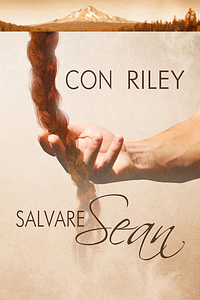Take a photo of a barcode or cover
sophomore slump—or superior sequel?
the answer is: yes.
this book is ambitious as hell. while not entirely successful in its every gambit, it is still a damned fine piece of work, all the same.
it demands you sit back and be told the story—to stop pushing, and be guided instead.
over and over, you'll find yourself reading something and wondering, 'why is this here? why am i seeing this now? what about that other thing?'
the narrative loops over and around itself again and again, layered with surprising allusions, parallels, and metaphors—and you'll find that in its playful structure and clever symmetry, you've been set up just right for incredibly satisfying emotional payoffs.
so much skill here. so much talent.
sometimes the payoffs are funny. sometimes they hit you in the gut, and stay there, aching dully for the next few pages, until the next virtuosic flourish of narrative makes you forget about it.
damned fine writing.
imperfect, however. i found it needed a bit of restraint above all; never dull, never pedantic, the impressively sure manipulation of timeline could still become wearying once in a while. i found some subplots slightly unnecessary, and others slightly underdone. nothing major, and nothing big enough to ever make me put the book down, except to rave about it in status updates.
so: not perfect.
but the payoffs, man.
the payoffs, at the end of each discrete chunk of gorgeously engineered sleight-of-hand—
—worth it.
worth it every single time.
give it space to do its thing. you may wonder, and you may want—but in the end all you can do is receive, and smile about it when it's over.
recommended.
the answer is: yes.
this book is ambitious as hell. while not entirely successful in its every gambit, it is still a damned fine piece of work, all the same.
it demands you sit back and be told the story—to stop pushing, and be guided instead.
over and over, you'll find yourself reading something and wondering, 'why is this here? why am i seeing this now? what about that other thing?'
the narrative loops over and around itself again and again, layered with surprising allusions, parallels, and metaphors—and you'll find that in its playful structure and clever symmetry, you've been set up just right for incredibly satisfying emotional payoffs.
so much skill here. so much talent.
sometimes the payoffs are funny. sometimes they hit you in the gut, and stay there, aching dully for the next few pages, until the next virtuosic flourish of narrative makes you forget about it.
damned fine writing.
imperfect, however. i found it needed a bit of restraint above all; never dull, never pedantic, the impressively sure manipulation of timeline could still become wearying once in a while. i found some subplots slightly unnecessary, and others slightly underdone. nothing major, and nothing big enough to ever make me put the book down, except to rave about it in status updates.
so: not perfect.
but the payoffs, man.
the payoffs, at the end of each discrete chunk of gorgeously engineered sleight-of-hand—
—worth it.
worth it every single time.
give it space to do its thing. you may wonder, and you may want—but in the end all you can do is receive, and smile about it when it's over.
recommended.

